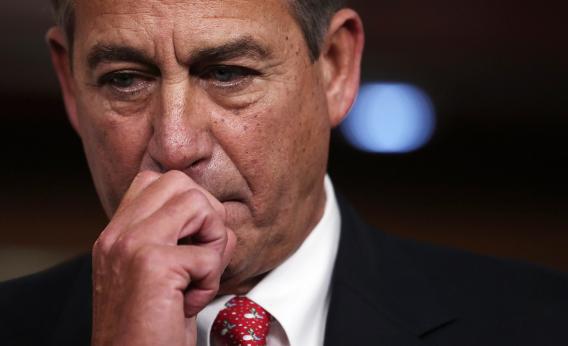It feels like a lifetime ago, but within the past decade one of the main problems hovering over the U.S. Congress was corruption. Sometimes it was gross corruption like when the FBI found almost $100,000 in bribes stashed in the freezer of then-Rep. William Jefferson or the millions in cash accrued by ex-Rep. Duke Cunningham as bribes. But the rot sometimes went deeper. Tom Delay was convicted of money laundering not for personal gain but as part of a machine-building effort to help Republicans gain control of the Texas legislature. DeLay was also dinged for offering inappropriate inducements to secure votes from House Republicans for the Bush administration’s 2003 Medicare bill. And while the conviction of Sen. Ted Stevens was ultimately overturned due to prosecutorial misconduct, the sense that his career was fundamentally dedicated to pork-barrel politics is hard to escape.
In response to this wave of sleaze, the new Democratic majority elected in 2006 imposed some tough new ethics rules. When Republicans retook the House in 2010, they aimed to symbolize a clean break with DeLay-era practices by adopting a blanket ban on earmarks. And by and large it worked. Nothing’s perfect, but today’s Congress is remarkably free of corruption—whether of the formally illegal kind or just unseemly horse trading.
And that is precisely the problem. It turns out that a Congress full of highly principled men and women, fired-up by genuine idealism about America’s future, is a place where nothing gets done.
That’s not to say we should pine for a return to bribery and graft, but watching the prolonged fiscal cliff deadlock (and other Obama-era legislative battles) it was hard not to miss a little old-fashioned earmarking and pork.
Consider John Boehner’s embarrassing failure to line up sufficient House Republican support for his own Plan B legislation on the fiscal cliff. Coalition fragmentation has always been a problem for American legislative leaders, but defections normally arise from the center. Legislators holding at-risk seats sometimes feel they can’t do what the leadership wants, and wise leaders don’t expect vulnerable members to vote for everything. DeLay had a term for it: “catch and release”—only making the absolutely bare minimum of members with moderate seats take tough votes, and making sure no member who might be vulnerable in his next election needed to vote for too many leadership initiatives. But a member whose seat isn’t at risk has traditionally needed to vote with the leadership lest leaders retaliate by curtailing pet projects. Take away these pet projects, and a vital tool of legislative discipline goes missing.
Conversely, the ability to dispense a little legislative schwag is a key presidential weapon for getting things done.
One of the earliest magazine articles of my career was a hit piece on Democratic Sen. Max Baucus and his unseemly willingness to back key Bush administration initiatives such as the 2003 Medicare bill. My more mature perspective is that, alongside the bill’s main provisions, Baucus struck a pretty solid bargain for the people of Montana—securing billions in extra spending on rural hospitals as the price of his support. Flash forward to 2009, and I thought the Obama administration would pull something similar to get key Republican senators to back his health care overhaul. Surely the votes of Susan Collins and Olympia Snowe could be bought for the price of comprehensive coverage for injuries related to lobster fishing, and the location of some major new facility in Portland or Bangor. It didn’t work out that way. Instead, centrist Democrats who secured some sweetheart deals for their own states found themselves castigated for their “Cornhusker Kickback” and “Louisiana Purchase.”
So you get the Congress we have today: One in which leaders can neither discipline their rowdy base nor court vulnerable members with blandishments. It’s common to blame gerrymandering for this mess, but while that certainly plays a role, the Senate is hardly much better than the House in this regard. Gridlock shakes out as a pretty natural consequence of an American constitutional order that was deliberately designed to be cumbersome.
The judicious application of lard emerged over the years as a time-honored means of greasing the wheels of government. As movie-goers everywhere learned this winter, random patronage jobs played a key role in even something as high-minded as the passage of the 13th Amendment. The old saw is that you don’t want to see the ugly process by which either legislation or sausage gets made. But sausage is delicious. And legislation, while not as tasty, is necessary. One virtue of a parliamentary system is that it can give us cleaner bills without so much muss and fuss. But within the system of government we have, the old days of back-scratching and sweetheart arrangements look a good deal better than almost no sausage at all.
